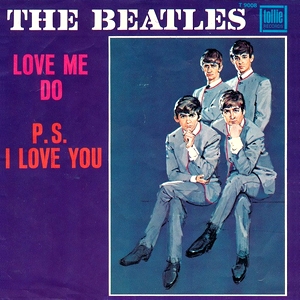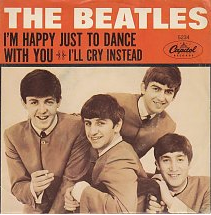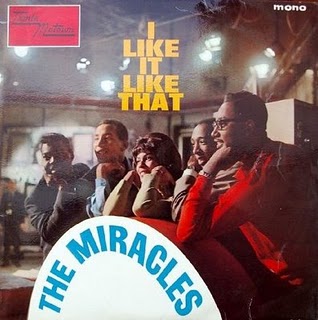See also
- White on White, Shangri-La, Charade & Other Hits of 1964 , an album by Nelson Riddle
White on White is a 1918 abstract oil-on-canvas painting by Kazimir Malevich.
White on White may also refer to:

The Moody Blues were an English rock band formed in Birmingham in May 1964. The band initially consisted of drummer Graeme Edge, guitarist/vocalist Denny Laine, keyboardist/vocalist Mike Pinder, multi-instrumentalist/vocalist Ray Thomas, and bassist/vocalist Clint Warwick. Originally part of the British beat and R&B scene of the early–mid 1960s, the band came to prominence with the UK No. 1 and US Top 10 single "Go Now" in late 1964/early 1965. Laine and Warwick left the band by the end of 1966, being replaced by guitarist/vocalist Justin Hayward and bassist/vocalist John Lodge. They embraced the psychedelic rock movement of the late 1960s, with their second album, 1967's Days of Future Passed, being a fusion of rock with classical music that established the band as pioneers in the development of art rock and progressive rock. It has been described as a "landmark" and "one of the first successful concept albums".

The White Stripes were an American rock duo from Detroit, formed in 1997. The group consisted of Jack White and Meg White. They were a leading group of the 2000s indie rock and garage rock revival.
The White Rabbit is a character in Alice's Adventures in Wonderland.

"Love Me Do" is the debut single by the English rock band the Beatles, backed by "P.S. I Love You". When the single was originally released in the United Kingdom on 5 October 1962, it peaked at number 17. It was released in the United States in 1964 and topped the nation's song chart. Re-released in 1982 as part of EMI's Beatles 20th anniversary, it re-entered the UK charts and peaked at number 4. "Love Me Do" also topped the charts in Australia and New Zealand.
5 is a number, numeral, and glyph.

"I'm Happy Just to Dance with You" is a song written by John Lennon and Paul McCartney and recorded in 1964 by the English rock band the Beatles for the film soundtrack to A Hard Day's Night. Lead vocals are by George Harrison, whose performance in the film marked the first mass media depiction of Harrison singing lead.

"I Just Don't Know What to Do with Myself" is a song written by Burt Bacharach and lyricist Hal David.
The Power and the Glory is a 1940 novel by Graham Greene.

"Walk On By" is a song composed by Burt Bacharach, with lyrics by Hal David, for singer Dionne Warwick in 1963. The song peaked at number 6 on the US Billboard Hot 100 and number 1 on the Cash Box Rhythm and Blues Chart In June 1964 and was nominated for a 1965 Grammy Award for the Best Rhythm and Blues Recording. Isaac Hayes recorded the song five years later, in 1969, and reached number 30 on the Hot 100 chart and number 13 in the R&B charts with his version. "Walk On By" has since charted numerous times in various countries, with wildly different arrangements.
Shot in the Dark may refer to:
The One That Got Away may refer to:
"The House of the Rising Sun" is a traditional folk song, sometimes called "Rising Sun Blues". It tells of a person's life gone wrong in the city of New Orleans. Many versions also urge a sibling or parents and children to avoid the same fate. The most successful commercial version, recorded in 1964 by the British rock band The Animals, was a number one hit on the UK Singles Chart and in the US and Canada. As a traditional folk song recorded by an electric rock band, it has been described as the "first folk rock hit".

I Like It Like That is an album by Motown group the Miracles, compiled for the UK market and released on the UK Tamla-Motown label as one of its initial group of six albums in March 1965. There was no equivalent album to this in the USA. It is known as the Miracles' "forgotten album".
"That's What Love Is Made Of" is a 1964 hit song by Motown's original vocal group, the Miracles, issued on the label's Tamla records subsidiary. It was taken from the group's album Greatest Hits from the Beginning, but originally appeared on their abortive 1964 album, I Like It Like That.
"Come On Do the Jerk" was a 1964 song recorded by R&B group the Miracles on Motown Records' Tamla label subsidiary. The song was co-written by Miracles members Pete Moore, Bobby Rogers, Smokey Robinson, and Ronnie White. A single-only release, it did not appear on any original Miracles studio album, and was the group's last single release of 1964. Robinson and fellow Miracle Bobby Rogers were the song's producers. The song's flip side, "Baby Don't You Go", was also a popular regional hit but was not released on CD until The 35th Anniversary Collection in 1994. Both sides of this single received new stereo mixes for the 2002 compilation Ooo Baby Baby: The Anthology.
"(You Can't Let the Boy Overpower) The Man in You" is a 1964 R&B song by the Miracles on Motown Records' Tamla subsidiary label. It was written by Miracles lead singer Bill "Smokey" Robinson, and was produced by Robinson and Motown president/founder Berry Gordy Jr. One of several gospel-styled call and response tunes the group issued in 1964, this song reached number 59 on the Billboard Pop chart, and the top 20 of the Cash Box R&B chart, peaking at number 12. The song was recorded on August 17, 1963, and was the group's first single release of 1964.

12 Songs of Christmas is a 1964 album of Christmas music by Frank Sinatra, Bing Crosby, and Fred Waring's Pennsylvanians. The singers previously collaborated on the album America, I Hear You Singing, which was released earlier the same year. The album was reissued as White Christmas on by WEA budget label Midi in 1973.
64 or sixty-four or variation, may refer to:
Is It True may refer to: